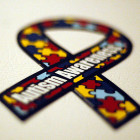
Communities are Critical in Aiding Criminal Justice System, Experts Say
|
NEW YORK – Community was the word on everyone’s lips at the Symposium on Crime in America at the John Jay College of Criminal Justice. More police engagement with the community is needed to win the war against gangs, and communities need to be more receptive to those returning from prison, according to experts speaking at the conference. According to FBI data provided by Jeffrey Butts, Director of the John Jay Center on Research and Evaluation, violent crime arrests are at a 30-year low. But "as violence has dropped," Butts said, "arrests for other crimes increased since the 1990s." One reason may be that gangs are still a serious problem across the country and according to Los Angeles Police Chief Charlie Beck, gang violence has changed.








